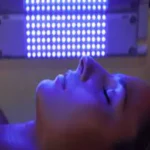Simple Treatments for Nasal Polyps You Should Know
If you’ve ever struggled with constant nasal congestion, trouble breathing through your nose, or pressure in your face that doesn’t seem to go away, nasal polyps might be the reason. These small, noncancerous growths often go unnoticed at first. But over time, they can interfere with how you breathe, sleep, and even smell.
The good news? You don’t always need surgery to treat them. Several nasal polyps treatments are simple, safe, and effective—especially when you have the right guidance.
This guide will explain nasal polyps, why they form, and the most reliable ways to treat them. It will also explain when to seek help from an ear, nose, and throat specialist for long-term relief.
What Are Nasal Polyps?
Nasal polyps are soft, painless growths that develop on the lining of your nasal passages or sinuses. They are usually teardrop-shaped and form in response to long-term inflammation.
Though not dangerous, they can block airflow, disrupt sleep, and worsen allergies or sinus infections. Polyps often occur in both nostrils and can vary in size.
They are most common in adults but can also affect children—especially those with asthma, allergies, or chronic sinus problems.
What Causes Nasal Polyps?
Chronic inflammation is the main cause. This could come from:
- Allergic rhinitis (hay fever)
- Asthma
- Chronic sinusitis
- Sensitivity to aspirin
- Cystic fibrosis
- Certain immune system disorders
When the nasal lining becomes inflamed for a long time, it can swell and form these benign growths. Polyps tend to recur, especially if the root cause isn’t treated.
Common Symptoms of Nasal Polyps
Small polyps may not cause symptoms. But as they grow, they can lead to:
- Persistent nasal stuffiness
- Runny nose or postnasal drip
- Decreased sense of smell or taste
- Facial pressure or headache
- Snoring or sleep disturbances
- Frequent sinus infections
If you’re dealing with any of these symptoms long-term, it’s a good idea to explore nasal polyps treatments and see a specialist.
Diagnosing Nasal Polyps
A simple physical exam may be enough to spot larger polyps, but smaller ones or deeper growths might require:
- Nasal endoscopy (a tiny camera used to examine the sinuses)
- CT scan to see how much the sinuses are affected
- Allergy testing if chronic inflammation is suspected
Once diagnosed, the next step is choosing the best treatment plan based on the size and impact of the polyps.
Simple and Effective Nasal Polyps Treatments
Let’s look at the most common and straightforward ways to treat nasal polyps. These options focus on reducing inflammation and improving sinus health.
1. Nasal Corticosteroid Sprays
This is usually the first line of treatment. These sprays help shrink polyps and reduce inflammation in the nasal passages.
Common sprays include:
- Fluticasone
- Budesonide
- Mometasone
They are easy to use and have few side effects when used correctly. Depending on the severity, relief can take a few days to a couple of weeks.
2. Saline Nasal Rinses
Saline irrigation or rinses can help flush out mucus, allergens, and irritants that trigger inflammation.
- Use a neti pot or squeeze bottle
- Only use sterile or distilled water
- Rinse once or twice daily for best results
This gentle, natural method works well alongside corticosteroids and helps keep sinuses clear.
3. Oral or Injectable Steroids
If nasal sprays aren’t enough, your ear, nose, and throat specialist may recommend a short course of oral steroids like prednisone.
These are usually taken for 5 to 10 days to reduce swelling quickly. In more severe cases, a one-time injectable steroid may be offered.
Because of potential side effects, this is typically not a long-term solution but can be very effective for flare-ups.
4. Antihistamines and Allergy Medications
If allergies are contributing to chronic nasal inflammation, antihistamines can help.
Options include:
- Loratadine
- Cetirizine
- Fexofenadine
They reduce sneezing, nasal drip, and congestion—especially if pollen or dust mites trigger your symptoms.
Your doctor may also suggest allergy shots (immunotherapy) for long-term relief.
5. Antibiotics (If Infection Is Present)
Polyps can sometimes lead to secondary infections. If you have signs like facial pain, fever, or thick yellow-green nasal discharge, antibiotics may be needed to treat the infection before continuing other therapies.
When Simple Treatments Aren’t Enough
For some people, especially those with large or recurring polyps, medication alone may not be enough. That’s when your ear, nose, and throat specialist may discuss surgery.
Endoscopic Sinus Surgery
This is a minimally invasive procedure done through the nostrils. It allows the surgeon to:
- Remove polyps
- Open blocked sinuses
- Clean infected areas
There are no external cuts, and recovery is typically quick. Most people return to work within a few days.
Surgery isn’t a cure but offers long-term relief when combined with continued medical management afterward.
Managing Nasal Polyps After Treatment
Once polyps are removed or reduced, the goal becomes prevention. Your doctor may recommend:
- Daily nasal sprays to prevent recurrence
- Continued saline rinses
- Monitoring for allergy symptoms
- Annual follow-ups with your ENT
Since polyps tend to come back over time, staying ahead of inflammation helps avoid future discomfort or procedures.
Can You Prevent Nasal Polyps?
While not all polyps can be avoided, you can lower your risk by:
- Treating allergies and asthma consistently
- Using a humidifier during dry months
- Avoiding irritants like cigarette smoke and chemical fumes
- Washing hands often to prevent infections
- Using saline rinses during allergy season
Lifestyle plays a big role in keeping nasal passages healthy—especially if you’ve had polyps.
When to See an Ear Nose and Throat Specialist
So when is it time to stop self-managing and get a professional opinion?
Consider visiting a specialist if:
- You’ve had congestion or sinus pressure for more than 10 days
- Over-the-counter medications haven’t helped
- You’ve lost your sense of smell
- You experience frequent sinus infections
- You’ve been diagnosed with asthma or allergies, and symptoms are worsening
An ear nose, and throat specialist will diagnose you, explain your treatment options, and help you avoid unnecessary discomfort or delays.
How Nasal Polyps Affect Your Quality of Life
Many people think nasal congestion is just a small annoyance. But when it’s constant and tied to nasal polyps, it can:
- Disrupt sleep
- Impact breathing during the day
- Interfere with exercise or physical activity
- Reduce taste and smell (which affects appetite)
- Make it harder to focus at work or school
That’s why even simple nasal polyps treatments can make a real difference in daily life. Relief often leads to better rest, clearer thinking, and more energy.
Questions to Ask During Your ENT Visit
To get the most out of your appointment, consider asking:
- What’s causing my polyps?
- Are medications enough, or will I need surgery?
- How long before I notice improvement?
- How can I prevent polyps from coming back?
- Will I need regular follow-up care?
These questions help build a complete care plan and give you confidence in the next steps.
Conclusion
Nasal polyps don’t have to disrupt your life. With today’s range of simple treatments—from nasal sprays and rinses to advanced therapies—most people find effective relief without surgery. And if you do need a procedure, options are safe, fast, and often life-changing.
At Fort Worth ENT, we’re here to help. If you’re struggling with breathing, sleep, or sinus discomfort that doesn’t go away, it may be time to look deeper. Contact a trusted provider at Fort Worth ENT to speak with an experienced ear, nose, and throat specialist about the best nasal polyps treatments for you. The right solution could be simpler—and closer—than you think.







